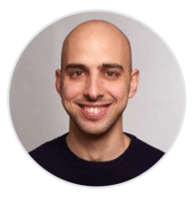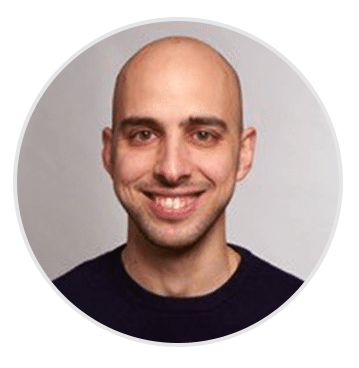Researcher Spotlight: Gabriele Varano, PhD
Icahn School of Medicine at Mount Sinai

Researchers have found the protein FOX01 is mutated in several types of aggressive B-cell Non-Hodgkin lymphoma, but the role these mutations play in lymphoma development is not fully understood. Dr. Varano’s LRF Postdoctoral Fellowship Grant project builds on earlier research showing that FOX01 mutations have an altered response to signals from the stress-activated protein kinase (SAPK) and will attempt to identify both the exact mechanism through which this occurs and its impact on lymphoma cells. Dr. Varano and his collaborators hope that identifying this mechanism will also lead to new avenues for targeted therapies. “This project is expected to identify important regulators of B-cell biology that may hold potential interests as novel targets for therapy of aggressive B cell lymphomas,” he says.
Dr. Varano received his MS in medical biotechnology from the University of Florence and his PhD from the University of Milan in his native Italy. While pursuing his studies, Dr. Varano undertook an internship at the University of Cambridge, where he attended a lecture by his eventual PhD mentor on the identification of genetic factors promoting B-cell lymphomagenesis. Intrigued, Dr. Varano shifted his own research focus towards that concept, particularly as it related to cancer immunology, and joined the lab of David Dominguez-Sola, MD, PhD at the Icahn School of Medicine at Mount Sinai in order to further this line of research. “I believe that understanding why and how specific genetic mutations are acquired and selected in B-cell lymphomas represents a unique opportunity to understand the role of those genes in the biology of normal B-cells,” he says, “as well as providing potential targets to exploit for therapeutic purposes.”
Dr. Varano was inspired to begin a scientific career by his father, a medical doctor who instilled in his son a love of science and learning. “One of the things we would tell each other is that the beauty of being a researcher is that you are doing something that no one else in the world is doing, and that you will be the first one to witness or discover something,” he says. As he continues his progress towards a career as an independent researcher, Dr. Varano is grateful for LRF’s support. “Thanks to the LRF, I will have economic and educational support for the next 2 years of my postdoctoral training. This will
allow me to work on not only this specific project, but will pave the way for the development of new projects, which will be essential for my transition as an independent scientist.”

